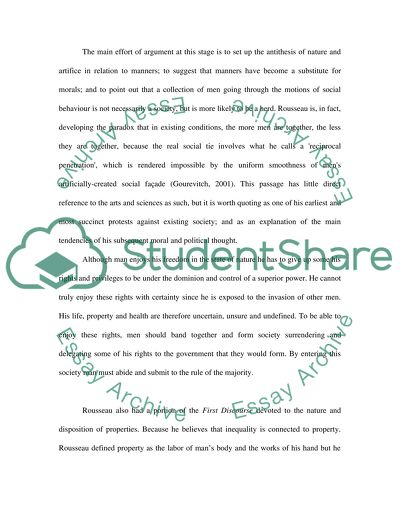Jean Jacques Rousseau: The Natural Inequality Essay. Retrieved from https://studentshare.org/miscellaneous/1526121-jean-jacques-rousseau-the-natural-inequality
Jean Jacques Rousseau: The Natural Inequality Essay. https://studentshare.org/miscellaneous/1526121-jean-jacques-rousseau-the-natural-inequality.


